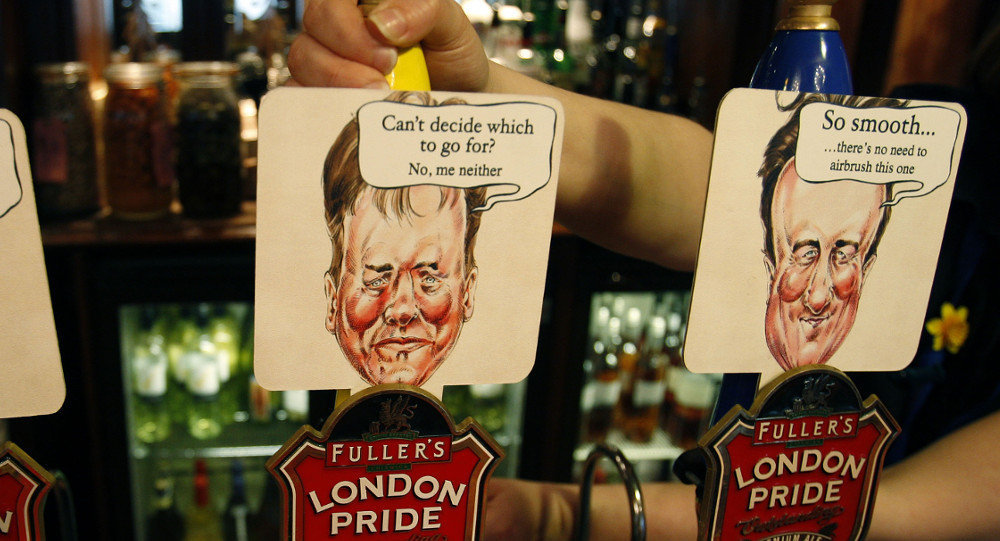As of the time of writing it is impossible to say with any confidence what the outcome of the election will be.
Most commentators agree that neither of the two big parties — Conservative and Labour — which have dominated British politics since the 1920s, will win enough votes to gain a majority in the new parliament.
There is therefore a strong possibility that any new government will be either a minority government (a government that does not have a majority in the parliament but which survives from day to day by cutting deals with other parties) or a coalition.
It is also possible, if no stable government can be formed, that there will be another election, probably in the autumn.
What does this mean for British foreign policy?
The two big parties — Conservative and Labour — differ very little on foreign policy.
There are perhaps marginally more opponents of the Western doctrine of “humanitarian intervention” (ie. regime change) in the Labour party than in the Conservative party, but the difference is slight, and the leadership of both parties is committed to it.
In relation to Russia both parties hold a strongly Atlanticist line, both support sanctions on Russia, and both support the present Ukrainian government. Indeed the Conservative and Labour leaders, Cameron and Miliband, actually compete with each other as to who is “tougher” on Russia.
The Liberal Democrat party, traditionally Britain’s third biggest party and a junior partner in the existing coalition government, holds the same views.
For critics of the present policies, one has to look to the two insurgent parties, the Scottish Nationalists and UKIP. In the case of the Scottish Nationalists, this reflects the traditionally friendly view of Russia in Scotland. In the case of UKIP, its leadership sees Russia as a resurgent country and wants the same for Britain.
The views on foreign policy of these two parties will not prevail in the new government. It will still be dominated by one of the two big parties — Conservatives or Labour — whose views on foreign policy will prevail.
No change in Britain’s foreign policy course should therefore be expected.
Does that mean the election will have no consequences?
That depends on how strong the new government will be.
A weak government, surviving from day to day, or (in Labour’s case) relying on Scottish votes, will not be able to take a strong anti-Russian lead, as the Cameron government has sought to do. If there is a crisis in Scotland, its focus will be on that, and its room for manoeuvre smaller still.
In the longer term it is difficult to believe there is nobody within the British foreign policy establishment who do not have grave doubts about the Cameron government’s ultra-hardline anti-Russian policy.
The Minsk negotiations in February provoked extraordinary recriminations in London at Britain’s exclusion from the talks.
No one openly blamed the policy. The focus was on Prime Minister Cameron’s supposed lack of interest in foreign policy or — absurdly — the decline in British military power (Germany is weaker militarily than Britain).
It is difficult to believe however that no one in London understands the true reason — the hardline anti-Russian line London is taking, which gives Moscow no reason to talk to it.
There must be some people in London, talking quietly in Whitehall’s corridors, who in the tradition of Churchill and Thatcher, understand London must moderate the policy, so it can start talking to Moscow again, and regain relevance.
Source: Sputnik
 Geostrategic Media Political Commentary, Analysis, Security, Defense
Geostrategic Media Political Commentary, Analysis, Security, Defense





